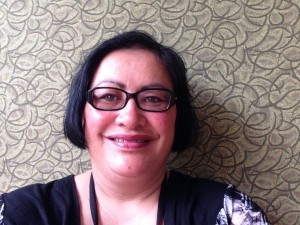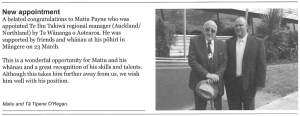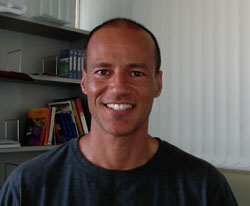Te Tumu postgraduate success
Featuring Malia Lameta & Te Ao Marama Tawhara. Six Te Tumu Masters-level students are graduating next week, with either Master of Arts, or Master of Indigenous Studies, showcasing our research strengths in the fields of Māori Studies, Pacific Island Studies, and Indigenous Development. Two are featured in today’s blog post, with more profiles forthcoming.
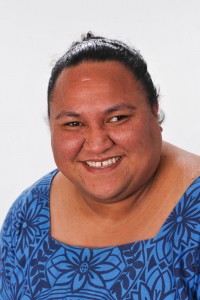 Malia Ellen Mamele Lameta (Samoan)
Malia Ellen Mamele Lameta (Samoan)
MA (Pacific Island Studies) supervised by Professor Michael Reilly and Dr Michelle Schaaf.
“I Am The Apple Of My Brother’s Eye” : An investigation into the evolving roles of Samoan women with particular reference to religion and gender relations.
[Click here to access the thesis]
Abstract: What does it mean to be a Samoan woman? The following thesis addresses this question by exploring the lived experiences of Samoan women with particular reference to religion and gender relations. Adopting an inter-disciplinary approach, it sheds light on the tenacity of socio-cultural and political factors that influence women’s roles and status. In particular, this research explores how Samoan women navigate the differing and often contradicting worlds of culture, Christianity, family, education, politics and gender. Information for this research was obtained through a series of interviews and literature analysis of primary and secondary sources. It has been the aim of this thesis to prove, not only to myself, but to those with a background and understanding similar to my own, that we, as women, are not inferior within Samoan culture. The participants’ words have been integrated throughout this thesis from Chapter One so as to emphasise and give strength to the voice of Samoan women. This thesis is centred on the inspiration and aspiration of these women and as a result, their testimonies have been brought alongside the literature as opposed to being supplementary. Women’s roles as sisters, wives and daughters are explored and the question is posed whether their cultural importance and status has been diminished by the influence of Christianity. From the evolution of women’s roles, to the changing meanings of the feagaiga, from the arrival of Christianity to the present day, women within Samoan society play a role that is imperative to the proper function of families, villages, districts and nation. The arrival of Christianity has not stripped us of our traditional importance but has increased and expanded our roles. We, Samoan women, are not oppressed, we are not suppressed; we have a voice, a place and dreams.
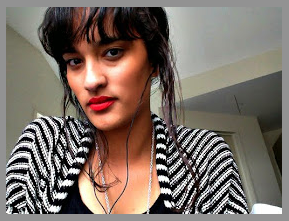 Te Ao Mārama Anna Maria Tawhara (Ngāi Tūhoe/German)
Te Ao Mārama Anna Maria Tawhara (Ngāi Tūhoe/German)
MA (Māori Studies) supervised by Dr Matiu Rātima & Associate Professor Poia Rewi.
Kia Māori te reo Māori? An investigation of adult learner attitudes towards the impact of English on te reo Māori
Abstract: This study sought to answer the following questions: What impact does the English language have on te reo Māori (the Māori language)? What attitudes do adult language learners have towards the impact of English on te reo? And what implications do these attitudes have for the revitalisation of te reo Māori? Engaging in in-depth semi-structured interviews with eight former University of Otago Māori language students from Te Tumu School of Māori, Pacific and Indigenous studies[1] (Te Tumu) forms a necessary part of this research project. Following Braun and Clarke (2008), the data gathered from the interviews was examined using Thematic Data Analysis.
The fundamental aim of this thesis is to explore and describe adult learner attitudes towards the impact of English on te reo Māori, so as to gain insight into how active language learners within Te Tumu perceive the influence of the English language. The thesis has two key foci, the first is parts of language, such as transliteration, code switching, pronunciation, grammar and idiom. The second is the impact of English within the context of teaching and learning.
On the one hand, this study shows that the participants view the impact of English as a form of contamination that is having a negative effect on Māori cultural concepts because there is less use of authentic Māori words and phrases, which in turn dilutes and minimises the representation and understanding of a Māori epistemological world view. On the other hand, some participants identified specific times when English language usage could be helpful to their developing proficiency in te reo Māori. The findings yield that there are certain exceptions such as the use of transliterations and code switching as being a necessary tool for scaffolding learning of te reo Māori particularly during the early stages of learning. The use of transliteration as a form of humour was also seen as acceptable. However, the main concern among the cohort was the maintenance of the authentic use of te reo Māori, more specifically, Māori lexicon, grammar, pronunciation, and idiom. Furthermore, the participants felt strongly about certain aspects of teaching and learning within Te Tumu that privilege Pākehā teaching methods[2] such as the grammar translation method and a lack of attention to tikanga Māori (Māori culture) and Māori centred pedagogies. The findings from this study show definitively that the participants feel that the language is in a state of contamination, on the other hand they are also concerned that there are times where transliteration and code switching can be necessary, even useful.
[1] See http://www.otago.ac.nz/tetumu/ for further information about the University of Otago department of Māori, Pacific and Indigenous studies.
[2] By Pākehā methods of teaching I am referring to the pedagogical teaching practices that favour the use of the English language.
The Ngāruawāhia Tūrangawaewae Regatta
This Wednesday Tangiwai Rewi will be giving a seminar, “The Ngāruawāhia Tūrangawaewae Regatta: Today’s Reflections on the Past”, based on her on-going research on intergenerational knowlege transfer relating to Kīngitanga practices.
For more details, see the Abstract
The seminar will be in Te Iringa Kōrero (R3S10, 3rd floor, Te Tumu), 2.30-3.30, Wednesday 25 November, and is open to all.
“How whakapapa saved my life”
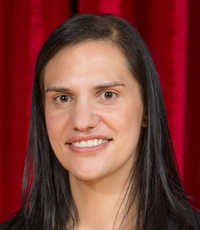 Dr Karyn Paringatai (Ngāti Porou) is perhaps best known for her innovative award-winning teaching pedagogy – teaching in the dark. But on 10 November, Karyn gave a talk for TEDxDunedin on a much more personal issue, on how learning her whakapapa saved her life. TEDx talks are about “Ideas Worth Spreading”.
Dr Karyn Paringatai (Ngāti Porou) is perhaps best known for her innovative award-winning teaching pedagogy – teaching in the dark. But on 10 November, Karyn gave a talk for TEDxDunedin on a much more personal issue, on how learning her whakapapa saved her life. TEDx talks are about “Ideas Worth Spreading”.
Click here to watch the video of Karyn’s talk.
Karyn teaches Māori language and performing arts in Te Tumu.
Tangata Whenua Internship at Waikato Museum
Mō ngā tauira… Kei te kimi te Whare Taonga o Waikato i tētahi tangata hei kaimahi āwhina mō ngā taonga Māori. He pai tēnei momo mahi hei kaupae tuatahi o tō ara mahi, rangahau rānei. Tirohia te pānuitanga, kia kitea he pai rānei tēnei tūranga mōu.
“Testing te reo”
Check out Poia Rewi’s research on the revitalization of te reo Māori in this extended article in the latest issue of the Otago Bulletin.
Te Tumu Research Roundup
Te Tumu staff have been active with research in the first half of the year. The highlights (listed below) show the depth and diversity of the research undertaken at the School.
In April Te Tumu hosted a three-day conference, Te Kura Roa: Minority Language & Dialect Conference, that attracted a number of speakers, from within New Zealand, as well as from USA, Tahiti, Australia, Scotland and Israel. Poia Rewi was the driving force behind this conference, a collaboration between the University of Otago, Victoria University and Ngā Pae o te Māramatanga. Suzanne Duncan was the key organiser, ably assisted by a number of students.
In May Te Tumu celebrated its 25th Anniversary, in conjunction with the Māori Centre’s anniversary. Events were organised by a committee headed by Karyn Paringatai and Suzanne Duncan. Of particular note was a one-day symposium at which a number of Te Tumu alumni presented on where their university educations had taken them.
In July, the book “The Lives of Colonial Objects” was published by Otago University Press, comprising a number of short essays on particular objects. Four Te Tumu staff contributed chapters: Megan Pōtiki on a tokotoko held by her whānau; Paerau Warbrick on a Māori Land Court Minute Book; Pāora Tapsell on the Te Haupapa cannon at Maketū; and Lachy Paterson on a press used to print a Māori-language newspaper in the 1860s. Also in this volume is a chapter by Michael Stevens, a former Te Tumu post-doc, on his whānau’s kahukiwi.
Pāora Tapsell, Poia Rewi and Tangiwai Rewi were on Research and Study Leave in Semester 1, with Matiu Ratima, Jim Williams and Michael Reilly away for Semester 2. Pāora Tapsell has recently returned from Vienna, having given a keynote address “Waka Wairua: Imagining an Other way of knowing our Pacific” at the New Zealand Studies Association conference. Matiu Rātima was awarded the Fulbright-Nga Pae O Te Maramatanga Scholar Award; this allows him to spend time at the University of Hawai’i to observe the teaching of Hawaiian languages.
In May, Megan Pōtiki published an article in the New Zealand Journal of History, 49, 1 (2015) on the Māori-language writings of H.K. Taiaroa and Tame Parata, and in June presented at a paper at the 4th International Conference on Language, Literature and Linguistics in Singapore on the use of old manuscripts as a means of revitalizing Kāi Tahu reo. Megan is writing this up for publication at present.
In February, Lachy Paterson gave a Waitangi Day at the Dunedin Art Gallery on past, present and future perceptions of the Treaty of Waitangi. As he didn’t have any teaching duties in Semester 1 he was able to travel to Canada in February/March where he gave a number of talks at the University of Alberta and University of Manitoba on ‘Indigenous Literacy and Literacy Practices: Māori in the 19th Century’ and (with Angela Wanhalla) ‘Indigenous Women, Writing and Colonialism’. In April he presented at a conference on colonial print media at the University of Cambridge, UK.
In June Jenny Bryant-Tokalau presented a paper entitled ‘New Communities and the State in Suva, Fiji’ to the Urban Melanesia theme at the European Society for Oceanistes Conference (ESFO), in Brussels. The paper will be published in a special edition of the Journal de la Société des Océanistes in 2016.
Tangiwai Rewi has recently published an article in the Journal of the Polynesian Society, 124, 1 (2015) on ‘The Ngāruawāhia Tūrangawaewae Regatta: Today’s Reflections on the Past’. Click here to access.
In February, Michelle Schaaf presented on ‘The role of family in Pacific migrant participation in physical activity and sport’ at the Inaugural International Conference on Migration Social Disadvantage and Health, in Melbourne.
Merata Kawharu and Karyn Paringatai both spoke at at Hui Poutama 2015: Māori Research Sympoisum in May. Hui Poutama is the University of Ōtāgo’s biennial symposium of Māori research. Karyn’s talk was on ‘The value of the dark: The students’ perspective’, and Merata Kawharu’s on ‘Entrepreneurship: the relevance of a customary context. A Ngāti Whātua narrative’.
Karyn Paringatai‘s research on teaching in the dark is in demand. She presented at a recent Pecha Kucha event at the Dunedin Public Art Gallery, and in July gave a keynote presentation at the Tuia Te Ako hui at Lincoln University.
Lyn Carter has two works in press: ‘Climate Change and Aotearoa New Zealand: A review’, a journal article with Wiley Interdisciplinary Review (LSE); and ‘Iwi are where the People are: Rethinking Ahi Kā and Ahi Matao in Contemporary Māori Society’ in the forthcoming Huia Publishers book, Home. Here to Stay!
Finally, Te Tumu is revamping its MAOR 102 textbook. The old book, Ki te Whaiao: An Introduction to Māori Culture and Society was published in 2004, and while it had served its purpose well, staff felt that a new volume was necessary. As with Ki te Whaiao, Te Tumu staff are doing most of the writing for this new book.
Paul Tapsell keynote in Vienna
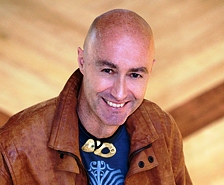 Te Tumu’s Professor Paul Tapsell is currently in Vienna as a keynote speaker at the New Zealand Studies Association conference “Empires and Cultures of the Pacific”. His address is entitled “Waka Wairua: Imagining an Other way of knowing our Pacific“.
Te Tumu’s Professor Paul Tapsell is currently in Vienna as a keynote speaker at the New Zealand Studies Association conference “Empires and Cultures of the Pacific”. His address is entitled “Waka Wairua: Imagining an Other way of knowing our Pacific“.
Click on link for the Abstract of Paul’s address.
Dr Paringatai as keynote speaker at Tuia Te Ako hui
 Te Tumu lecturer, Dr Karyn Paringatai, will be giving a keynote address at the Tuia Te Ako hui to be held at at Te Kete Ika, Lincoln University, Lincoln, Canterbury, 8 -10 July 2015. This hui will bring together the diverse Māori tertiary whānau to discuss, debate and challenge current issues relating to Māori success in tertiary education. Karyn, who won the Prime Minister’s Supreme Teaching Award last year, will be talking about her innovative teaching methods of “teaching in the dark”.
Te Tumu lecturer, Dr Karyn Paringatai, will be giving a keynote address at the Tuia Te Ako hui to be held at at Te Kete Ika, Lincoln University, Lincoln, Canterbury, 8 -10 July 2015. This hui will bring together the diverse Māori tertiary whānau to discuss, debate and challenge current issues relating to Māori success in tertiary education. Karyn, who won the Prime Minister’s Supreme Teaching Award last year, will be talking about her innovative teaching methods of “teaching in the dark”.
Click here for biographies of the Keynote Speakers.
Career Advancement for Te Tumu Graduate
A belated congratulations also from Te Tumu to Matiu Payne who is now Te Ihu Takiwā Regional Manager for Te Wānanga o Aotearoa. Matiu completed his Master of Indigenous Studies at Te Tumu, and is currently undertaking PhD study with us on Ngāti Mutunga and the Native Land Court.
Te Tumu academic wins Ngā Pae Fulbright visiting scholarship
Congratulations to Dr Matiu Rātima, one of our Māori-language kaiako, who has recently been awarded a Ngā Pae Fulbright visiting scholarship to undertake research at the Mānoa campus of the University of Hawai`i, in Oahu. Matiu will be away from 10 August 2015 to 10 January 2016 during his Research and Study Leave.
While in Hawai’i where he’ll be working with Dr Keao Nesmith of the Kawaihuelani Center for Hawaiian Language on their research project titled, “Communicative Language Teaching for Indigenous Language Revitalisation”.
Globally there are few indigenous languages that are not under threat of decline or extinction. It has been estimated that of the world’s 6,912 known languages, 95% of these are spoken by less than 6% of the population. Experts forecast that less than 10 percent of the world’s living oral languages (in the year 1992) will still be spoken by 2092. Urgent action, underpinned by good research, is vital to stop this decline.
Matiu’s research will examine four key questions.
1. How are indigenous languages being taught within universities?
2. What pedagogies are being applied?
3. What constitutes ‘best practice’ in indigenous language teaching? And;
4. How can Communicative Language Teaching help to produce speakers of indigenous languages?
The research focuses on three case studies, the teaching in universities of the Māori, Hawaiian and Tahitian languages.
Fulbright New Zealand promotes “mutual understanding between the peoples of New Zealand and the United States of America by means of educational and cultural exchange”, and offers a range of grants for New Zealand academics and graduates to research in America.

